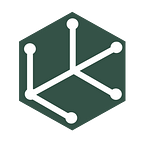5 books about Bayesian networks for biomedical data scientists
From gene regulatory networks to agricultural pest control, there are numerous applications of Bayesian networks in biology. If you’re a biologist, or even a computer scientist, this list will help you begin your journey towards understanding Bayesian networks and their use in biology.
1. Probabilistic Methods for Bioinformatics with an Introduction to Bayesian Networks by Richard E. Neapolitan
Richard E. Neapolitan does a fantastic job guiding you through the foundations of probability and straight into Bayesian networks. With plenty of practical, concrete examples, this book is very easy to follow. If you’re new to probability theory or need a refresher, this is the book for you! He also has another book, Learning Bayesian Networks, which is a great follow-up to this one. Although I recommend this book to biologists wanting to learn about Bayesian networks, it’s also great for data scientists wanting to learn more about bioinformatics.
2. Bayesian Networks in R with Applications in Systems Biology by Marco Scutari, Radhakrishnan Nagarajan & Sophie Lèbre
This book is packed with R code covering structure learning and inference for static and dynamic Bayesian networks. A broad number of accessible examples and exercises help you gain familiarity with some of the most popular R packages for Bayesian networks: bnlearn, G1DBN, ARTIVA, lars, simone, and GeneNet. As a bonus, they finish the book with a section on parallel computing to help you speed up your code!
3. Bayesian Networks: With Examples in R by Marco Scutari & Jean-Baptiste Denis
Much like Bayesian Networks in R, this book is chock-full of code that’s easy to follow. If you plan on using bnlearn, this is the book for you! There are enough examples on continuous and discrete Bayesian networks you should be able to begin using bnlearn comfortably. But that’s not all! If you’re interested in using JAGS for your networks, there’s a great example on a hybrid continuous and discrete Bayesian network with rjags code. Don’t know which package you want to use? That’s okay! This book provides a breakdown of different R packages so you can understand which packages will work for your data and specific goals.
4. Probabilistic Graphical Models for Genetics, Genomics and Postgenomics edited by Christine Sinoquet & Raphaël Mourad
Designed with biologists, statisticians, and computer scientists in mind, this book begins with an introduction to probabilistic graphical models and genetics before diving into specific applications. Each chapter is stand-alone and includes advanced approaches for Bayesian genotype-phenotype networks, modeling linkage disequilibrium, and probabilistic graphical modeling of GWAS studies.
5. Probabilistic Modeling in Bioinformatics and Medical Informatics by Richard Dybowski, Dirk Husmeier & Stephen Roberts
Although this book doesn’t exclusively focus on Bayesian networks, it does cover complex cases of network learning and inference as well as gene regulatory networks. Additionally, it goes beyond R packages and highlights software such as Hugin, Bayes Net Toolbox, and the Probabilistic Networks Library. In addition to Bayesian networks, this book teaches Bayesian statistics, Hidden Markov Models, State Space Models, and neural networks with examples in phylogenetics, DNA recombination detection, gene expression, EEG data analysis, and pharmacokinetics.
These 5 books should give you a strong foundational knowledge covering Bayesian network theory and its implementation in R. You should also have a solid grasp of how Bayesian networks are advancing biomedical and ecological research. If you have any other recommendations, I’d love to hear them. Happy learning to both you and your networks!
Originally published at https://thatdarndata.com on December 18, 2020.
